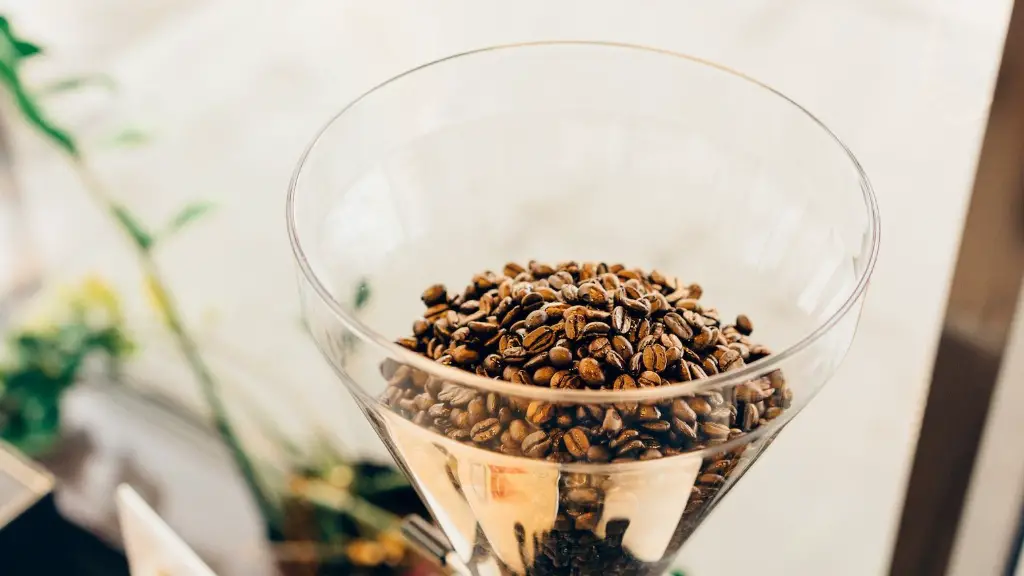Coffee Before Workouts: The Benefits
Coffee before workouts can offer numerous benefits to athletes. Caffeine, which is a stimulant, can be found in coffee, and it can have an important role in an athlete’s performance. First, caffeine increases mental focus, and so can be used in activities such as running, cycling and weight lifting. Secondly, caffeine improves fat burning and can help athletes burn calories more efficiently. Thirdly, caffeine can reduce muscle soreness, allowing athletes to train more intensely and for longer.
The Effects of Coffee on Health
In addition to improving performance, coffee can also have important health benefits. Studies have shown that it can reduce inflammation, improve digestive function and increase energy levels. Coffee also has several antioxidants which can improve overall health. Furthermore, it can improve cardiovascular health and reduce the risk of stroke and heart disease. Finally, it can reduce the risk of some types of cancer, such as bladder cancer and prostate cancer.
Recommendations for Coffee Intake Before Workouts
As with any substances, there are certain recommendations for how to use coffee before workouts. Firstly, it is important to drink it in moderation and not overdo it. Too much caffeine can lead to feelings of restlessness and anxiety. It is also important to consider the type of coffee being consumed. Black coffee is best as it contains the least amount of calories and sugar. Additionally, adding milk or cream can add unnecessary calories and may not be beneficial before workouts. Finally, it is important to drink the coffee in the right amount of time before the workout. The ideal amount of time before a workout is 30 minutes – 1 hour.
How Does Coffee Affect Performance?
Coffee can affect an athlete’s performance in both positive and negative ways. On the positive side, caffeine can increase focus, improve fat burning and reduce muscle soreness. On the other hand, drinking too much coffee can cause restlessness and anxiety, making it difficult to focus on the task at hand. Additionally, drinking too much caffeine can have a diuretic effect, leading to dehydration and making it difficult to exercise at full capacity.
Nutrition Strategies Before Workouts
In addition to coffee, there are a variety of other nutrition strategies that can be used before workouts. Eating carbohydrates before workouts can provide athletes with the necessary energy to sustain their workout. Additionally, eating protein before workouts can improve muscle recovery and help athletes build muscle. Finally, drinking water before workouts can help with hydration and ensure proper performance during the workout.
Expert Advice on Coffee Before Workouts
Experts suggest that consuming coffee before workouts can be beneficial, but it should be done in moderation. Drinking too much coffee can lead to feelings of restlessness and anxiety, which can be counterproductive for athletes. Additionally, it is important to consider the type of coffee being consumed and to drink it in the right amount of time before the workout. Finally, experts suggest that other nutrition strategies can be beneficial before workouts, such as eating carbohydrates and protein and drinking water.
Key Takeaways
By now, it should be clear that consuming coffee before workouts can offer numerous benefits to athletes. Caffeine increases focus and can also reduce muscle soreness, improve fat burning and reduce the risk of some types of cancer. However, it is important to consume coffee in moderation and consider the type and timing of the drink. Additionally, other nutrition strategies such as eating carbohydrates and protein and drinking water can also be beneficial before workouts.
The Benefits of Eating After Workouts
After a workout, it is important to refuel the body to replenish energy stores and build muscle. Eating within 2 hours after a workout can help the body to recover and feel ready for the next workout. Eating carbohydrates, protein and healthy fats can provide much needed nutrients and help the muscles to repair. Additionally, eating after a workout can help to keep blood sugar levels stable and prevent fatigue. Furthermore, it can help to rebuild muscle, improve muscle strength and speed up recovery time.
Nutrition Strategies After Workouts
Eating the right foods after workouts can help to refuel the body and increase performance. Firstly, it is important to eat a balance of carbohydrates, protein and fats. Eating carbohydrates can help to restore energy stores, while eating protein can help to rebuild muscle. Eating both carbohydrates and protein can also help to support a healthy immune system. Furthermore, adding healthy fats to the meal can help to slow down digestion, which can keep athletes fuller for longer. Additionally, consuming plenty of fluids after a workout can help to rehydrate the body.
Expert Advice on Refuelling After Workouts
Experts suggest that athletes should refuel within 2 hours after a workout. Eating a balanced meal of carbohydrates, proteins, fats and fluids can help to replenish energy stores and rebuild muscle. Additionally, eating healthy snacks such as nuts and dried fruit can help to keep athletes energised and reduce fatigue. Furthermore, drinking plenty of fluids can help to rehydrate the body and improve performance. Finally, experts suggest that if athletes are feeling hungry after a workout, they should reach for healthy snacks as opposed to sugary or processed foods.
Key Takeaways
Eating within 2 hours after a workout is important for replenishing energy stores and rebuilding muscle. Eating a balanced meal of carbohydrates, proteins and fats can help to refuel the body and increase performance. Additionally, drinking plenty of fluids can help to rehydrate the body and improve performance. Finally, experts suggest that if athletes are feeling hungry after a workout, they should reach for healthy snacks as opposed to sugary or processed foods.


